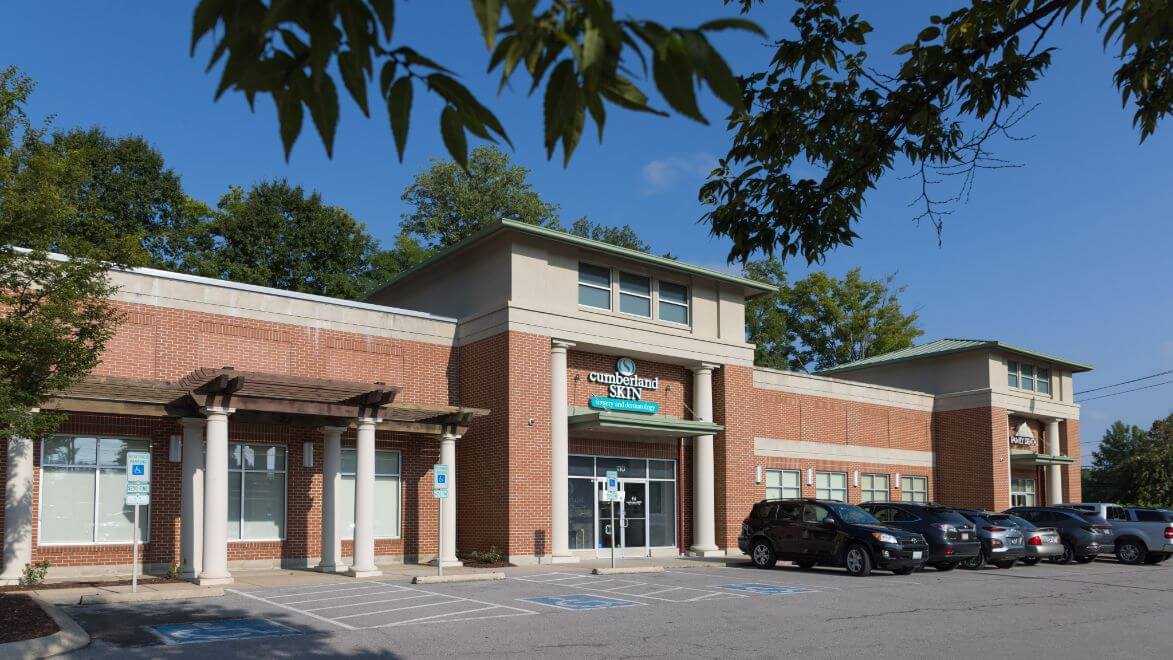Superficial Radiation Therapy
Superficial Radiation Therapy with GentleCure
With skin cancer on the rise, and nearly four million Americans diagnosed with basal and squamous cell carcinoma annually, physicians and patients now have an additional treatment option for non-melanoma skin cancer known as Superficial Radiation Therapy, or SRT for short.
At Cumberland Skin Dermatology, we are proud to offer GentleCure. The gold standard in non-surgical treatment for nonmelanoma skin cancer.
Want to treat your skin cancer without surgery?
GentleCure is a gentle, surgery-free treatment that is safe and has a very high cure rate in most lower-risk basal cell carcinoma and squamous cell skin cancers. Treatment is done right in the dermatology office over the course of 5-7 weeks using an advanced ImageGuided SRT machine. It is the only skin cancer treatment with ultra-sound imaging that lets you see the cancer on the screen and review the progress made throughout the course of treatment until there are no visible signs of cancer.
Examples of Radiation Therapy
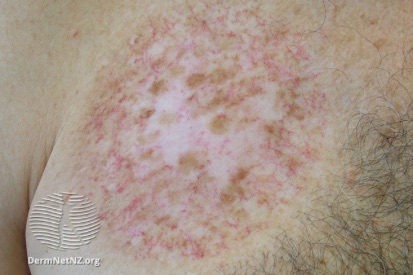
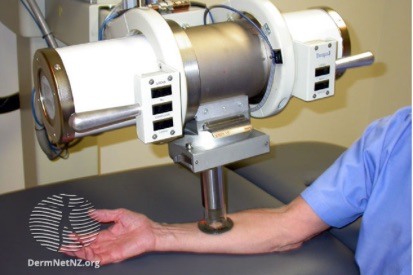
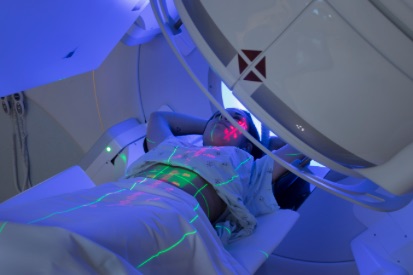
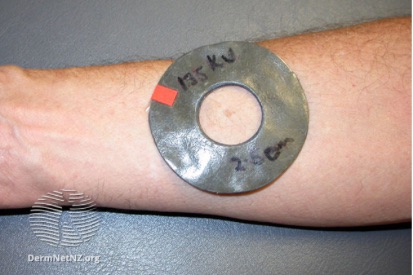
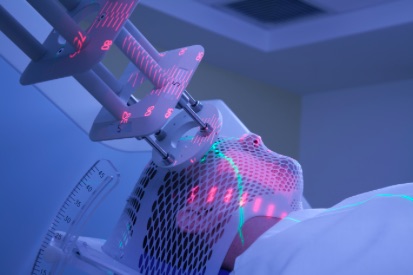
How Cumberland Skin and GentleCure Can Help: SRT
SRT safely destroys cancerous cells without damaging healthy surrounding tissue. Physicians view treatment areas with high-frequency ultrasound allowing them to thoroughly assess and target cancer cells with precision.
If you suspect that you have skin cancer or have recently been diagnosed and were told you need treatment, schedule an appointment with us today. We offer GentleCure (Image-Guided SRT)—the best non-surgical treatment for many common skin cancers. On your first visit, we will review your pathology report, discuss your treatment options, and work with you to determine the treatment plan that best meets your needs.
Superficial Radiation Therapy (SRT) FAQs
Superficial radiation therapy (SRT) targets superficial skin lesions within 2 centimeters of the skin's surface using lower energy levels than traditional radiation therapy. SRT is delivered through a specialized machine for precise targeting, resulting in fewer side effects and a shorter treatment schedule compared to traditional radiation therapy.
SRT is typically well-tolerated and non-invasive, with minimal discomfort during the procedure.
Sessions are usually quick, lasting only a few minutes.
The number of sessions depends on the specific condition being treated, but a typical course of treatment may involve multiple sessions over a period of weeks.
SRT is most commonly used to treat non-melanoma skin cancers and other superficial skin lesions, but its effectiveness may vary depending on the specific condition and individual patient factors.
Yes, follow-up appointments are typically scheduled to monitor progress and address any concerns. Regular check-ups help ensure the effectiveness of the treatment.
Why we chose to offer GentleCure (Image-Guided SRT)
If you are considering radiation therapy to treat your skin cancer, make sure you are getting GentleCure (ImageGuided SRT) with adaptive radiotherapy protocols. It’s the safe, effective, and gentle way to treat skin cancer using the most advanced treatment technology available today.
How to prepare for SRT?
Overall, SRT preparation emphasizes simplicity and ensuring the targeted skin area is ready for the focused and effective treatment.
Featured Products
Check your local office for current stock!
Check your local office for current stock!
Related Blog Posts
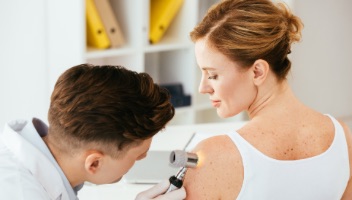
- Skin Cancer
- Skin Exams
In this blog, we’re covering what you need to know about five dangerous skin cancers, including basal cell carcinoma (BCC), squamous cell carcinoma (SCC), malignant melanoma, merkel cell carcinoma, and kaposi sarcoma.
Read More
- Skin Cancer
- Sun Safety
- Skin Care
If you’re unsure of how to effectively apply sunscreen, we’re here to help. Read our guide on when to apply it, how much sunscreen you should wear, how often to reapply, and more.
Read More
- Skin Cancer
- General Dermatology
- Skin Exams
- Sun Safety
Uncover the unparalleled benefits of Mohs surgery. Learn how this precise technique ensures minimal tissue removal while maximizing cancer removal rates, offering patients superior outcomes in skin cancer treatment.
Read More

